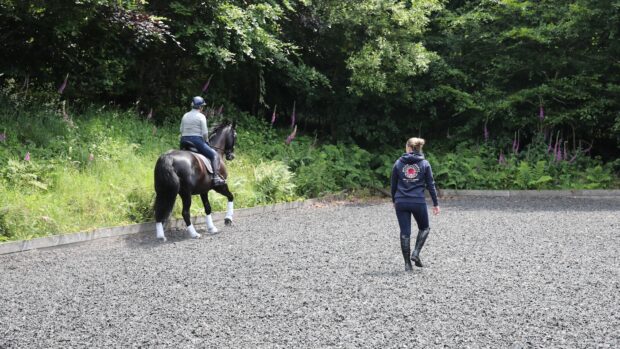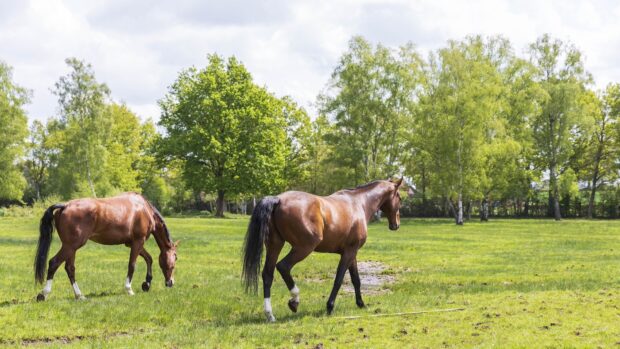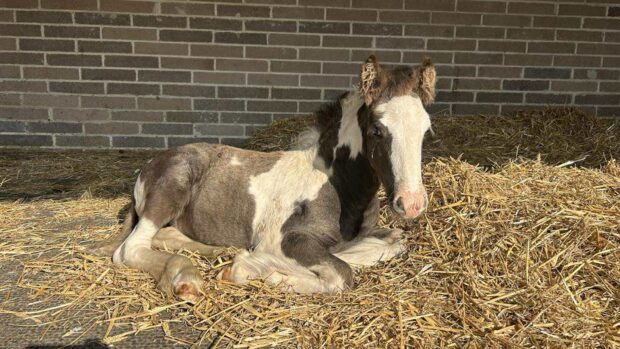EQUESTRIANS can no longer “stand on a castle and tell people to go away” but must engage with the public for our sports to survive.
In order to keep its social licence to operate — essentially, public acceptance of the involvement of horses in sport — equestrianism must not only keep equine welfare as its top priority but also demonstrate this to the outside world.
The latest tool to help this is an ethical framework for decision-making; a tool developed by the Royal Veterinary College (RVC) in conjunction with World Horse Welfare.
Charity CEO Roly Owers joined those involved in creating and testing the framework at a workshop on 4 October. The idea was to help inform the second phase of the research, which “aims to help provide sporting disciplines with a consistent ethical basis for the participation of equines in sport and leisure, designed to support the highest standards of welfare”.
The framework is essentially a process of steps, to be used to answer an ethical question. These include gathering and assessing evidence, from peer-reviewed studies to “lived experience”, and analysing the potential harms and benefits to stakeholders, including horses. The process should allow users to come up with an answer.
Madeleine Campbell, a senior lecturer in human-animal interactions and ethics at the RVC who is also a vet, rider and breeder, led the first phase of the project, the theory and function of the tool, and is leading the second, which aims to “optimise its function and uptake”.
“Because of [everything I do with horses] I’ve been very aware of the genuine will across the equestrian world to address the ethical challenges head-on, to protect and promote equine welfare,” she said.
“Because of my job, I attend different stakeholder meetings and conferences, and what’s become obvious is that there are a lot of conversations across equestrian sport about ethical issues, as and when they crop up, and a need to identify a consistent method that all of us in the sport can use to address them, to fulfil our shared aim of promoting equine welfare.”
Dr Campbell looked at ethical frameworks in other sports, and at animal welfare frameworks, to put the tool together. She said she believes a practice is ethical if it meets three key criteria: to minimise negative welfare effects and maximise positive effects, to identify and mitigate against any unnecessary risk, and to adhere to any relevant rules and legislation.
“What the framework doesn’t do, and isn’t supposed to do, is provide a ‘correct’ answer to any question,” she said, adding that rather it is a tool to help analyse ethical questions in a consistent way.
“It allows us to show the outside world that as a sport, we take ethical issues very seriously, and have a consistent method to analyse them, and reach evidence-based decisions, to form evidence-based policy,” she said.
The initial framework was tested repeatedly with professionals from a range of disciplines, and with a range of areas of expertise. Each time, the participants used the tool to answer a question and gave feedback. The framework was then refined and tested again.
One of these participants was former national endurance champion Susan Howes, who explained that she had been part of a group discussing an Endurance GB rule.
“I was joined by people with no endurance experience, and we were given an endurance question,” she said, adding that the group was asked whether the Endurance GB rule that allows novice, five-year-old, horses to complete 10 rides, to a maximum 450km total, in their first year of competition, was appropriate.
Ms Howes said she had always felt this was “an awful long way” for a horse of that age, but had to explain the issues to those with open minds. To her surprise, the process, including looking up records of horses who had completed the distance as novices, found no evidence to suggest this had done them any harm.
“I’d never done that, so it was a surprise to me, with my preconceived ideas, to find no evidence any horses had been compromised,” she said. “There were records of these horses competing years later, to advanced levels. We looked at the key considerations and the stakeholders, and concluded that, as long as the horses are fit enough and taken care of, this is actually ok.”
Ms Howes said it helped to have non-endurance people to challenge her opinions, and that explaining certain things to them “actually made me change my own mind”.
“A framework that allows that amount of debate on a controversial topic, which can make people change their minds and think about things in a different way is a really good process,” she said.
Dr Campbell said the aim is to engage with more regulatory bodies, and also grassroots sport. FEI veterinary committee chair Jenny Hall, who was in the workshop, said the committee will consider it, adding that she is “very excited about this collaborative opportunity to have these discussions”.
“What’s really good about this is that it brings in ethics; whether we should do something at all, and sometimes that’s the bit we don’t necessarily think about,” she said.
Ms Howes added that the framework is beneficial as it removes any emotion from the equation of difficult questions, and allows a logical process to be followed. It also might help if an incident has sparked a widespread reaction on social media, so a governing body can say it is using the framework to assess, and invite members to contribute, for example.
“We have to be prepared to justify our actions, and I think this framework can help us do that,” she said. “We can’t just stand on top of our castles and say ‘we’re fine, go away’, we have to be able to engage.”
You might also be interested in:

Spotlight on the ethics of using horses in our sport

All riders have a part to play in ensuring horse sport’s future

Subscribe to Horse & Hound magazine today – and enjoy unlimited website access all year round
Horse & Hound magazine, out every Thursday, is packed with all the latest news and reports, as well as interviews, specials, nostalgia, vet and training advice. Find how you can enjoy the magazine delivered to your door every week, plus options to upgrade your subscription to access our online service that brings you breaking news and reports as well as other benefits.




